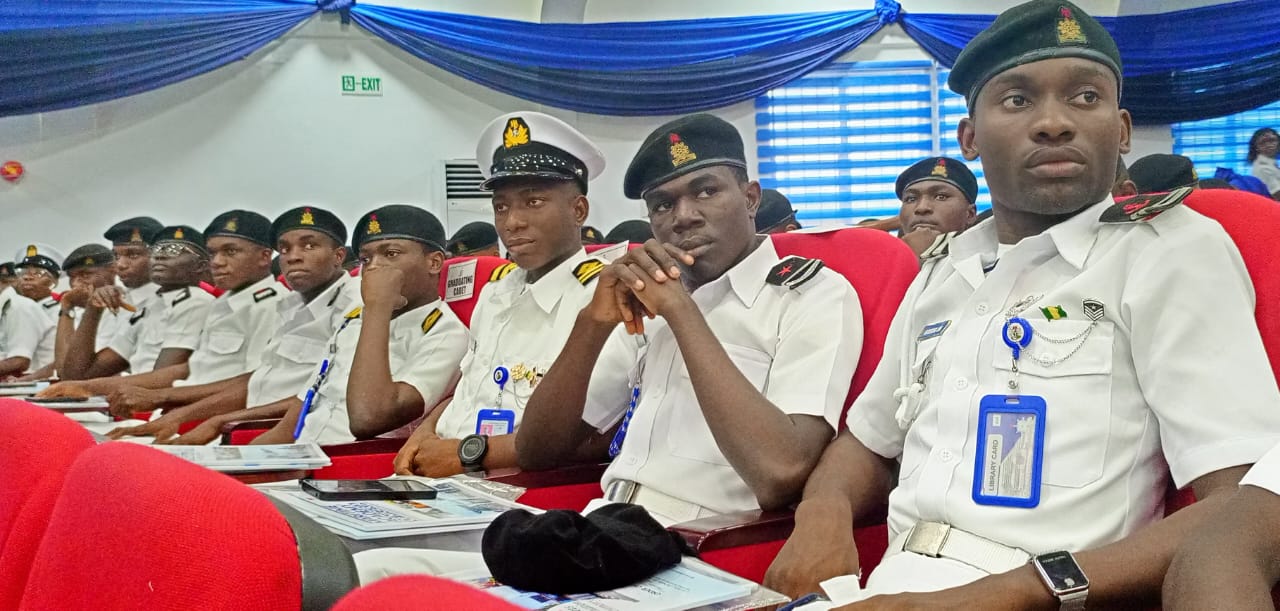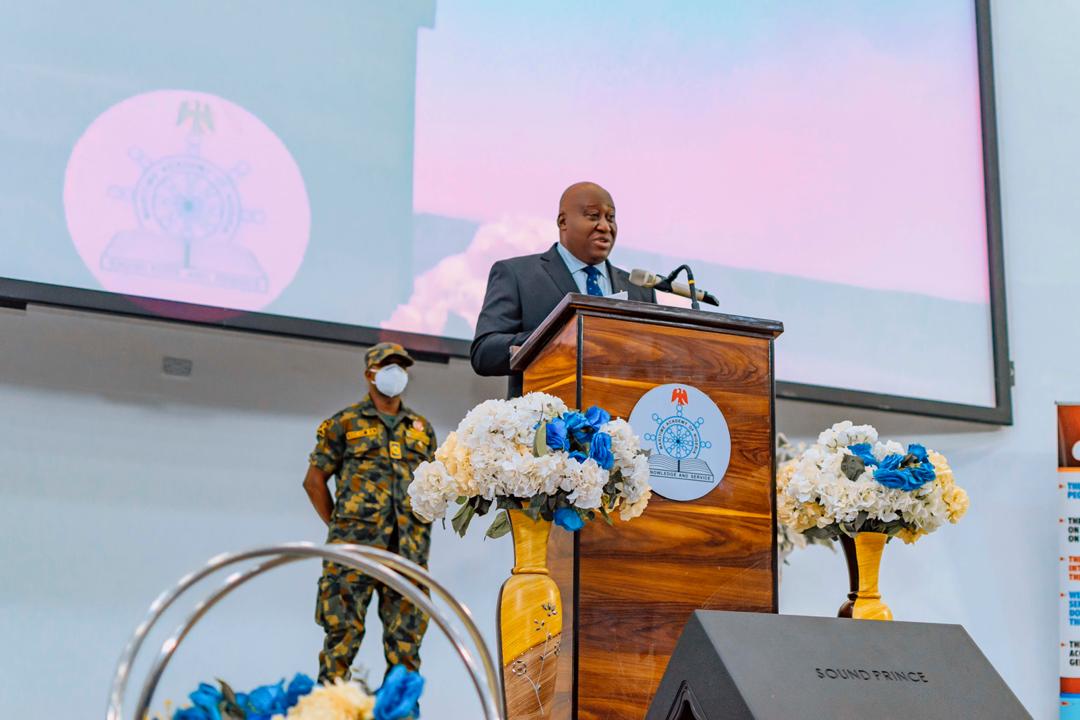Cadets of the Maritime Academy of Nigeria, Oron, Akwa Ibom State, have been exposed to contemporary issues in the nation’s maritime industry during the fourth quarter Maritime Lecture Series, which held at the Academy from 4-6 November 2024.
The lecture series themed: ‘Promoting Maritime Safety in Nigeria’s Territorial Waters: Issues and Prospects’ had presentations by Amb. Maureen Tamuno, Engr. Emmanuel Ilori, Mrs Jean Chiazor Anishere, SAN, Barrister Oritsematosan Edodo-Emore, and Barr. Kioba Anabraba.

From the paper presentations, the maritime experts explored issues concerning the need for review of legal provisions supporting different aspects of shipping and safety of lives with regards to specifications of ship types as well as modalities of operations. Other issues interrogated the importance of further developing the nation’s maritime training institution to meet industry demands.
In his welcome address, Rector of the Academy, Commodore Duja Effedua (Rtd.) who described the maritime industry as the nation’s economic powerhouse, highlighted the importance of investment in modern technologies for more effective port facilities for global standards competitiveness in port operations.
According to Effedua: “The maritime industry is the backbone of Nigeria’s economy. Eighty per cent of international trade depends on maritime because, Nigeria as one of the major oil-exporting countries in the world is also a huge exporter of agricultural commodities such as Cocoa, Soya Bean, Soghum, Ginger and many more.
“We know there are the challenges of inadequate infrastructure, manpower and regulatory issues which are being tackled to get a workable framework and address other administrative hiccups, but amidst these challenges, the strategic location of Nigeria positions her to serve as a hub for regional and international trade within Africa-this alone is huge opportunity which we take advantage of.”
In his presentation, Marine Engr. Emmanuel Ilori, who has at some point in his career life worked at management level of Lloyd’s Register, congratulated the Cadets for a choice of career in the maritime, which enables global economy.
in his paper titled ‘Safety and Sustainable Maritime Human Capacity Development: Nigeria Maritime Industry Dimension,’ Ilori charged the Cadets to be very courageous and ensure that they are competent considering the high-capacity knowledge and skill demand on the job.
He said: “Your voyage will not be cut short, but remember that the sea will throw you back as you are on this journey. But you must persevere. This is all about you. What you can make of yourself and of the opportunities available.”
He shared his personal experience of how only 10 of the 20 in his class succeeded in completing their training programme. He spoke extensively on professional integrity and the hunger for knowledge that is needed to do the job as demanded on board a vessel.
Mrs. Jean Chiazor Anishere (SAN), in her presentation titled: ‘Safety of Lives at Sea: Wither Its Legal Conundrum,’ made reference to the failure of the builders of the ship Titanic, to make provisions for passengers and crew safety, which sank, thus gave birth to the Safety of Life at Sea (SOLAS) in 1981. Nigeria domesticated the instrument under section 215 of the Merchant Shipping Act of 2007.
She talked about the need for Nigeria to consider the evolving maritime landscape to make reviews in the harmonization of safety standards, hull construction and vessels structural integrity, fire safety standards that are in tune with present realities and demands.
In his contribution, Mr. Emmanuel Maiguwa, the President of the Alumni of Maritime Academy of Nigeria (AMANO), called for the embrace of smart ports, which leverages advanced technology to overcome challenges such as congestion, human interference and delays.
Speaking also, Maritime law expert, Dr. Emeka Akabogu, PhD, bemoaned the training of Cadets and other maritime professional outside Nigeria, considering the wealth of resources available at the Academy in Oron.
“At the Maritime Academy of Nigeria (MAN) Oron, Nigeria, from what I have seen, I am sad that we still send out people from Nigeria to different parts of the world for training,” Akabogu said.
In her presentation, maritime lawyer, Mrs Oritsematosan Edodo-Emore, identified Nigeria’s great efforts in safe-guarding her territorial waters through the operations of the Nigerian Navy, the Marine Police, and the Nigerian Maritime Administration and safety Agency (NIMASA) and some private initiatives. She, however, called for a review of legislation to avoid overlap of functions.
Edodo-Emore said it was important for the nation to improve on current steps to promote maritime safety and security in her territorial waters, which hold huge resources for wealth creation.
“The safety and security of the territorial waters is for economic stability and exploitation of natural resources.
“In Nigeria’s territorial waters there exists significant living and nonliving things, oil and gas deposits and installations, fish and marine life. 80% of the National budget is based on revenue from oil and gas and 90% of Nigeria’s import and export are carried by sea,” she noted.
She also mentioned some of the maritime offences as including armed robbery at sea, seizing a ship by force or receiving random in that regard.
A significant part of the lecture series is the interactive session that allows the Cadets to ask questions on all issues discussed during the presentations.
Earlier in his introduction about the importance of the lecture series, a former Director of he Specialised Seafarers Training Programme, Dr. Kevin Okonna, told the gathering that the programme serves as a platform for Cadets to learn from maritime industry experts, for the purpose of embracing the body of knowledge.
He added that the Academy prides itself as a global leader in maritime safety training.

































































